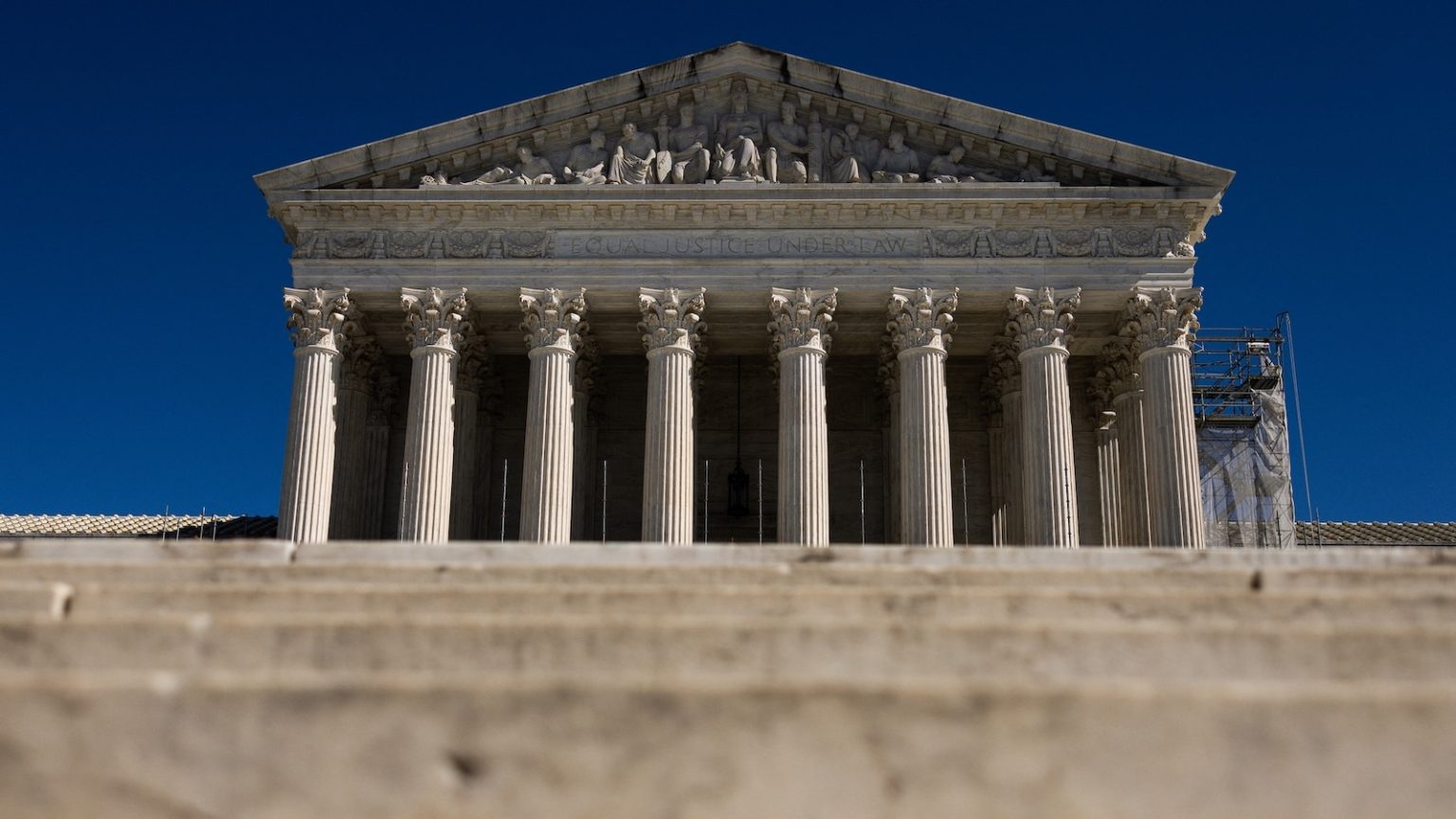The U.S. Supreme Court’s conservative majority on Wednesday appeared ready to clear the way for creation of the nation’s first religious charter school funded directly with taxpayer dollars.
The justices heard arguments in a landmark dispute from Oklahoma, where the state Supreme Court last year blocked the Catholic Church from receiving a charter school contract on grounds that it violated state and federal constitutional bans on government-sponsored sectarian education.
A decision overruling the state high court would have ripple effects nationwide, especially in the 45 states that are home to 8,000 charter schools serving more than 3.8 million kids.
https://abcnews.go.com/Politics/supreme-court-decide-oklahoma-religious-charter-school-constitutional/story?id=121246350
The state’s Republican attorney general argues that charter schools are public schools – open to all and subject to close supervision – and, as such, operate as extensions of state government subject to principles of separation of church and state.
The Supreme Court is seen in Washington, March 2, 2025.
Tierney L Cross/AFP via Getty Images
Lawyers for the prospective school — St. Isidore of Seville Catholic Virtual School — insist that it is privately created and controlled and that excluding it from generally available charter school funding is religious discrimination.
For more than two hours, the justices debated application of the First Amendment’s competing religion clauses to the case, weighing both its prohibition of state establishment of religion and its protection of free exercise of religious faith.
The court’s three liberal members were united in the view that charter schools are quintessentially public institutions that cannot advance a specific ideology using taxpayer funds.
“The essence of the Establishment Clause was, we’re not going to pay religious leaders to teach their religion,” said Justice Sonia Sotomayor.
Justice Elena Kagan noted that the Oklahoma law creating a charter school program explicitly says they must be nonreligious.
“These are state-run institutions,” Kagan said. “With respect to a whole variety of things, the state is running these schools and insisting upon certain requirements.”
Conservatives suggested they had a fundamentally different view of charter schools — as contractors for a public service rather than an arm of the government.
“The argument that St. Isidore and the board has made is that it’s a private entity that is participating in a state program,” noted Justice Clarence Thomas. “It was not created by the state program.”
Justice Brett Kavanaugh expressed concern that a ruling against St. Isidore on First Amendment grounds could call into question other government contracts with religiously affiliated organizations.
“I think a concern here is that religiously operated senior homes or food banks or foster care agencies or adoption agencies or homeless shelters, many of which get substantial funding from the government, would potentially … become state actors and, thus, not be able to exercise their religion,” Kavanaugh said.
A series of recent Supreme Court decisions has endorsed the idea that taxpayer-funded public benefit programs, from school vouchers to state-run scholarships, must be equally available, even if a person or organization has a religious affiliation.
Many of the justices said those precedents apply to the Oklahoma case.
Kavanaugh emphasized that religious charter schools would provide families with “options” but not confine students to a religious education.
“A student in Oklahoma is free to choose a public school, correct? No student is required to attend a charter school, correct?” he said.
“That’s right,” replied Gregory Garre, the attorney representing the state.
Justice Neil Gorsuch suggested that individual states opposed to religiously affiliated charter schools could tailor their laws to prevent that — and potentially curtail a charter’s independence.
“I can imagine some states might respond to a decision in your favor by imposing more requirements on charter schools,” Gorsuch said to attorney James Campbell representing the plaintiffs.
Chief Justice John Roberts posed critical questions of both sides. At one point, Roberts opined that a St. Isidore charter school would pose a striking “comprehensive involvement” between church and state. Later, he likened the relationship to Catholic Charities’ contract with the City of Philadelphia to provide adoption services; a 2021 high court decision said the city could not exclude the religious agency from the foster care program.
“How is that different from what we have here?” Roberts asked Oklahoma attorney Gregory Garre. “You have an education program, and you want to not allow them to participate with a religious entity.”
Justice Amy Coney Barrett recused from the case last year but did not explain her decision. Veteran court watchers have noted her close ties to the University of Notre Dame and personal relationships with law professors there who are involved in the case.
Her absence creates the possibility of a gridlocked 4-4 court, in which case the Oklahoma state Supreme Court ruling would stand. Roberts is widely seen as being the decisive vote.
“Today’s oral arguments made clear that states must not treat religious individuals and institutions as second-class citizens,” said Carrie Severino, a former clerk to Justice Clarence Thomas and president of JCN, a conservative legal advocacy group. “I expect the court will follow precedent and allow St. Isidore to offer educational choice for Oklahoma’s students.”
Opponents of religious charter schools said they feared a major ruling is on the horizon and could be transformative.
“If today’s arguments are any indication, the Supreme Court may be on the verge of abandoning one of the bedrock principles of our democracy,” said Rev. Dr. Shannon Fleck, executive director of Faithful America, a left-leaning Christian advocacy group. “Let’s be clear, this was always a test case, and today, the constitutional protections that have guarded true religious freedom for generations are at risk.”
